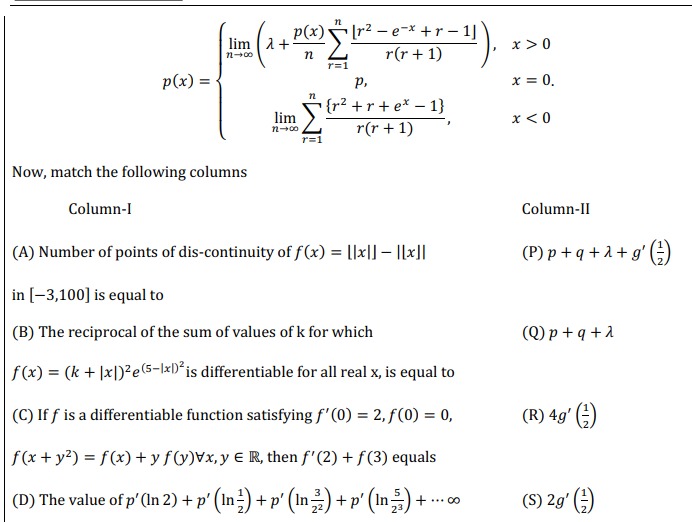Question
Question: $$ p(x) = \begin{cases} \lim_{n \to \infty} \left( \lambda + \frac{p(x)}{n} \sum_{r=1}^{n} \frac{r^2...
p(x)=⎩⎨⎧limn→∞(λ+np(x)∑r=1nr(r+1)r2−e−x+r−1),p,limn→∞∑r=1nr(r+1)r2+r+ex−1,x>0x=0x<0
Now, match the following columns
Column-I (A) Number of points of dis-continuity of f(x)=∣∣x∣∣−∣∣x∣∣ in [-3,100] is equal to (B) The reciprocal of the sum of values of k for which f(x)=(k+∣x∣)2e(5−∣x∣)2 is differentiable for all real x, is equal to (C) If f is a differentiable function satisfying f′(0)=2,f(0)=0,f(x+y2)=f(x)+yf(y)∀x,y∈R, then f′(2)+f(3) equals (D) The value of p′(ln2)+p′(ln21)+p′(ln223)+p′(ln235)+…∞

Answer
A → Q, B → S, C → R, D → P
Explanation
Solution
The problem is fundamentally flawed due to inconsistencies in the definition of p(x) and the resulting values not matching the options.
